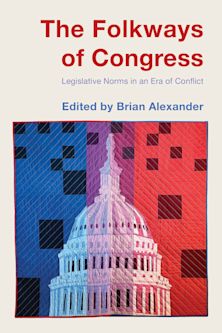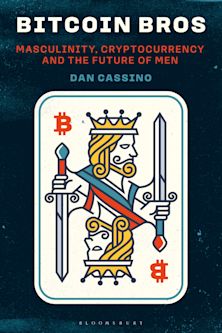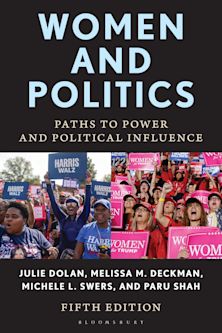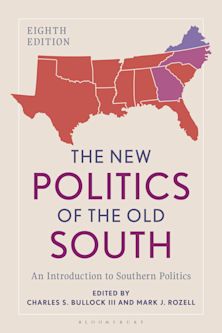- Home
- ACADEMIC
- Politics & International Relations
- American Government and Politics
- Education for Citizenship
Education for Citizenship
Ideas and Innovations in Political Learning
Grant Reeher (Anthology Editor) , Joseph Cammarano (Anthology Editor) , William Ball (Contributor) , Richard Battistoni (Contributor) , Joseph Cammarano (Contributor) , Kimberley P. Canfield (Contributor) , James D. Chesney (Contributor) , William D. Coplin (Contributor) , Otto Feinstein (Contributor) , Linda L. Fowler (Contributor) , John F. Freie (Contributor) , Glen Halva-Neubauer (Contributor) , Naeem Inayatullah (Contributor) , Marc Lendler (Contributor) , Daniel W. O'Connell (Contributor) , Craig Rimmerman (Contributor) , Mark Rupert (Contributor) , Benjamin R. Barber (Foreword)
- Textbook
Education for Citizenship
Ideas and Innovations in Political Learning
Grant Reeher (Anthology Editor) , Joseph Cammarano (Anthology Editor) , William Ball (Contributor) , Richard Battistoni (Contributor) , Joseph Cammarano (Contributor) , Kimberley P. Canfield (Contributor) , James D. Chesney (Contributor) , William D. Coplin (Contributor) , Otto Feinstein (Contributor) , Linda L. Fowler (Contributor) , John F. Freie (Contributor) , Glen Halva-Neubauer (Contributor) , Naeem Inayatullah (Contributor) , Marc Lendler (Contributor) , Daniel W. O'Connell (Contributor) , Craig Rimmerman (Contributor) , Mark Rupert (Contributor) , Benjamin R. Barber (Foreword)
- Textbook
Exam copy added to basket
Choose your preferred format. Please note ebook exam copies are fulfilled by VitalSource™.
Buy from Bloomsbury eTextBooks
You are now leaving the Bloomsbury Publishing website. Your eBook purchase will be with our partner https://www.vitalsource.com.
Your credit card statement will show this purchase originating from VitalSource Technologies. They will also provide any technical assistance you might require.
You must sign in to add this item to your wishlist. Please sign in or create an account
Description
This book addresses the challenge of education for citizenship at a specific, concrete level. It offers examples of efforts to create among our students a new set of what Tocqueville called mores or culturally defining 'habits of the heart' which will enhance citizenship, foster a sense of connectedness to a community stretching beyond the university, and ultimately, support the practices, basic values, and institutions necessary for the democratic process.
Table of Contents
Chapter 2 Teaching American Politics Through Service: Reflections on a Pedagogical Strategy
Chapter 3 Service Learning as Civic Learning: Lessons We Can Learn from Our Students
Chapter 4 The Urban Agenda Project
Chapter 5 Citizenship Courses as Life-Changing Experiences
Chapter 6 Internships and Citizenship
Chapter 7 Enhancing Citizenship Through Active Learning: Simulations on the Policy Process
Chapter 8 Doing the Rights Thing: Tales of Citizenship and Free Speech
Chapter 9 Teaching the Art of Public Deliberation: National Issues Forums on Campus
Chapter 10 Democratizing the Classroom: The Individual Learning Contract
Chapter 11 Wading in the Deep: Supporting Emergent Anarchies
Chapter 12 Team-Taught Courses and Multidisciplinary Education for Citizenship
Chapter 13 Using the Internet to Enhance Classroom and Citizenship Information
Chapter 14 The Internet as a Tool for Student Citizenship
Product details
| Published | Aug 29 1997 |
|---|---|
| Format | Ebook (Epub & Mobi) |
| Edition | 1st |
| Extent | 240 |
| ISBN | 9780742577855 |
| Imprint | Rowman & Littlefield Publishers |
| Publisher | Bloomsbury Publishing |
About the contributors
Reviews
-
A very important volume for educators in its explicit emphasis on and powerful examples of the importance of education in a democratic society. It is also impressive in its handling of diversity and pluralism, bringing into focus the importance of heterogeneity in a truly democratic nation. The volume's emphasis on 'active learning' will also be appreciated by educators, making very clear that the values of citizenship and the responsibilities of democracy must be acquired and practiced in student activity, not in passive learning. I recommend the volume to all my educator colleagues.
Eugene E. Garcia, dean of the Graduate School of Education, University of California, Berkeley
-
Learning, above all civic learning, needs to be experiential as well as purely cognitive. Serving others is not just a form of do-goodism or feel-goodism, it is a road to social responsibility and citizenship. When linked closely to classroom learning ('education-based community service') it offers an ideal setting for bridging the gap between the classroom and the street, between the theory of democracy and its much more obstreperous practice.
Benjamin R. Barber, from the foreword
-
The authors . . . discuss the techniques they use to not only teach about good citizenship but to actually elicit engaged citizenship behaviors from their students. In the process, they incorporate some of the best new teaching techniques into college-level courses. All of the authors take pains to present the background and rationale for the programs they describe. . . . Well written and edited.
Education Book Review
-
The book is well-written and editeddddd
Kate Corby, Michigan State University, Education Book Review
-
An engaging and useful collection of essays. . . . Political scientists who are interested in developing their students into responsible citizens can do well by reading through this practical guide. Together, the essays offer political scientists a wide range of ways to integrate citizenship-based projects and activities into their courses or their departments' curriculum. As such, Reeher and Cammarano should be commended for bringing together these timely perspectives into a single volume.
H-Net: Humanities and Social Science Reviews Online
-
The book is well-written and edited
Kate Corby, Michigan State University, Education Book Review



































